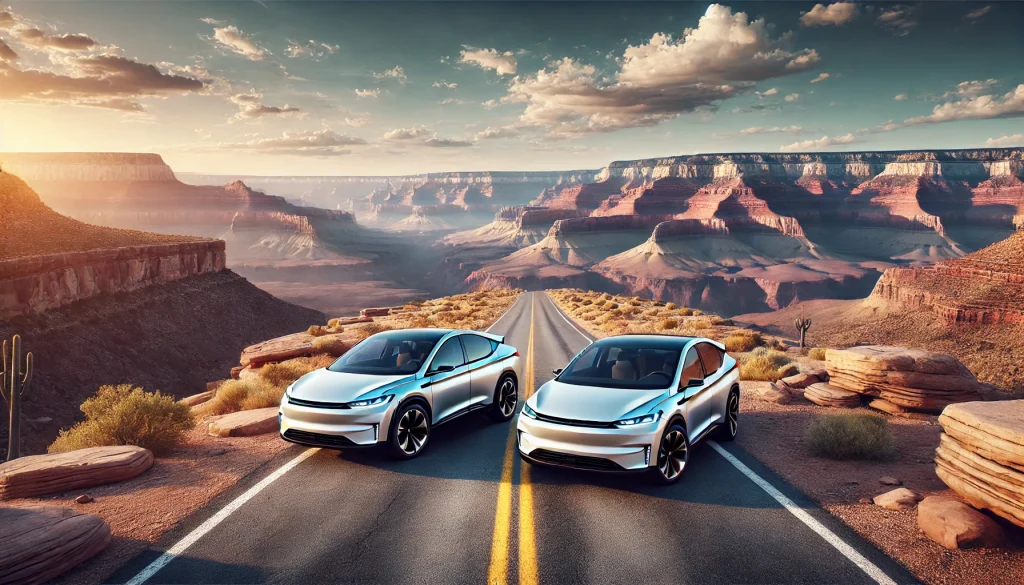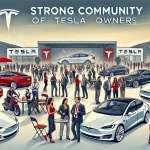As the world transitions toward cleaner, more sustainable transportation, two technologies have emerged as frontrunners in the race to replace internal combustion engines: hydrogen fuel cell vehicles (FCEVs) and battery electric vehicles (BEVs). While both offer zero-emission alternatives to traditional gasoline and diesel-powered cars, they operate on fundamentally different principles and come with distinct advantages and challenges. This article explores the differences between hydrogen fuel cell vehicles and battery electric vehicles, examining which technology is better suited to the future of transportation.
How Hydrogen Fuel Cells Work
Hydrogen fuel cell vehicles generate electricity by combining hydrogen with oxygen in a chemical reaction inside the fuel cell. The hydrogen is stored in high-pressure tanks within the vehicle, and when it is fed into the fuel cell, it produces electricity, water, and heat as byproducts. The electricity generated by the fuel cell powers the vehicle’s electric motor, while the water is emitted as harmless exhaust.
One of the key advantages of hydrogen fuel cell vehicles is their ability to refuel quickly, similar to gasoline cars. Refueling a hydrogen vehicle takes about five minutes, and a full tank can provide a range of around 300 to 400 miles, depending on the vehicle model. This makes FCEVs attractive for long-distance travel and for commercial use, where quick refueling times are crucial.
How Battery Electric Vehicles Work
Battery electric vehicles rely on large lithium-ion batteries to store energy, which is then used to power an electric motor. BEVs are charged by plugging into an external power source, such as a home charger or public charging station. The charging time varies depending on the type of charger used, with fast chargers capable of replenishing a battery to 80% capacity in around 30 minutes, while home charging can take several hours.
BEVs have gained significant popularity due to their simplicity, ease of use, and well-developed charging infrastructure. The range of modern BEVs varies, with many newer models offering 250 to 400 miles on a single charge. Additionally, battery electric vehicles are seen as more efficient than hydrogen vehicles because they do not require the conversion of energy from one form to another (e.g., from hydrogen to electricity).
Comparing Efficiency
One of the most significant differences between hydrogen fuel cells and battery electric vehicles is energy efficiency. BEVs tend to be more energy-efficient because electricity is stored directly in the battery and used to power the motor. The process of generating, storing, and using electricity in BEVs is relatively straightforward, resulting in less energy loss.
On the other hand, hydrogen fuel cell vehicles face energy losses at multiple stages. First, energy is needed to produce hydrogen, typically through electrolysis, which itself is an energy-intensive process. Then, the hydrogen must be compressed and transported, which requires additional energy. Finally, there are energy losses when converting hydrogen back into electricity within the fuel cell. As a result, the overall efficiency of hydrogen fuel cell vehicles is generally lower than that of battery electric vehicles.
Infrastructure and Availability
One of the major challenges facing hydrogen fuel cell vehicles is the lack of refueling infrastructure. While there are some hydrogen refueling stations, particularly in regions like California, Japan, and parts of Europe, they are few and far between compared to the vast network of charging stations for battery electric vehicles. Expanding hydrogen infrastructure is a significant hurdle that will require massive investment and collaboration between governments and private companies.
In contrast, the infrastructure for battery electric vehicles is much more advanced. Charging stations are available in many urban areas, highways, and even residential neighborhoods. Additionally, home charging options make owning and operating a BEV more convenient for everyday use. As governments and automakers continue to invest in charging networks, the accessibility of BEVs is expected to improve even further.
Environmental Considerations
Both hydrogen fuel cell vehicles and battery electric vehicles offer environmental benefits compared to internal combustion engine vehicles, but they differ in their overall impact. BEVs are often seen as the cleaner option because they can run on electricity generated from renewable sources such as wind or solar power. However, the environmental impact of BEVs also depends on how the electricity used to charge them is generated. If the electricity comes from fossil fuels, the environmental benefits of BEVs are reduced.
Hydrogen fuel cell vehicles produce only water vapor as emissions, making them a zero-emission vehicle when driving. However, the production of hydrogen itself can have environmental downsides, depending on the source. Most hydrogen is currently produced through natural gas reforming, which emits carbon dioxide. A greener option is “green hydrogen,” which is produced using renewable energy through electrolysis, but this technology is still expensive and not yet widely adopted.
Cost and Commercial Viability
The cost of both hydrogen fuel cell vehicles and battery electric vehicles has been a barrier to widespread adoption, but BEVs have made significant strides in becoming more affordable. As battery technology has improved and production has scaled up, the cost of manufacturing BEVs has decreased, making them more accessible to consumers. Tesla, for example, offers the Model 3, a highly popular BEV, at a competitive price point, helping to drive EV adoption globally.
In contrast, hydrogen fuel cell vehicles remain expensive to produce, largely due to the complexity of the fuel cell system and the high cost of hydrogen fuel. Automakers like Toyota, Honda, and Hyundai are developing hydrogen vehicles, but the costs are still higher than for most BEVs. Until hydrogen production and infrastructure become more widespread and cost-effective, FCEVs are likely to remain a niche option.
Conclusion
When comparing hydrogen fuel cell vehicles and battery electric vehicles, each technology has its strengths and challenges. Battery electric vehicles currently have the edge in terms of energy efficiency, cost, and infrastructure availability, making them the better option for most consumers today. However, hydrogen fuel cell vehicles hold promise for long-distance travel, commercial use, and heavy-duty applications where quick refueling and longer range are critical.
Ultimately, the choice between hydrogen and battery electric vehicles will depend on factors such as infrastructure development, technological advancements, and consumer needs. While BEVs are dominating the market now, hydrogen fuel cell technology could play an important role in the future of transportation, particularly in specific sectors where battery technology may not be as practical.



It’s so cool to see how both electric and hydrogen cars are developing. I hope that they will continue to develop hydrogen engines.
Ya… but im not see hydrogen machines on roads
BEVs vs. hydrogen—both awesome! 🚗💨 BEVs win today, but hydrogen’s got potential. Exciting times ahead!
Fr fr, can you even name any cars with a hydrogen engine? 🤔
h2 cars r overhyped 🤔 bevs ftw 👍👍